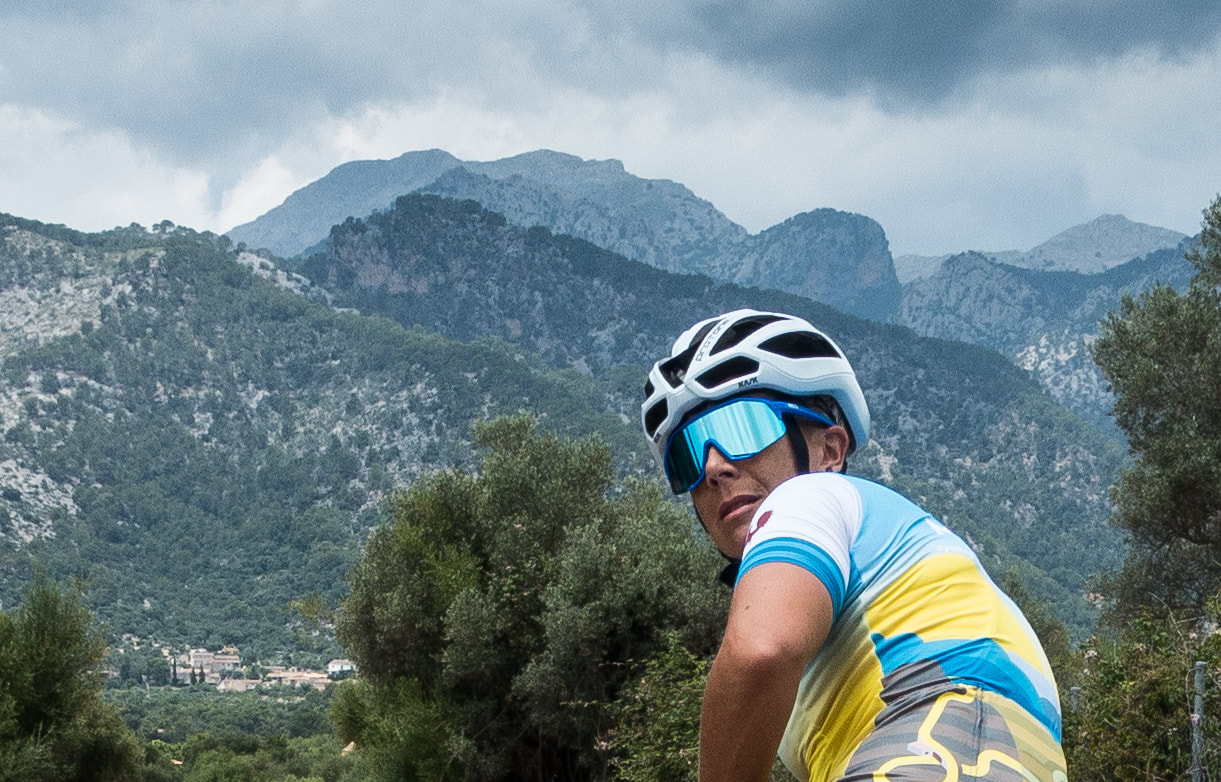|
It’s comforting and frustrating in equal measure to discover one of the earliest psychological experiments ever carried out involved a researcher noticing that cyclists tend to have faster times when riding in the presence of a counterpart as opposed to riding alone (Triplett, 1898). This early observation has been repeated in lots of different sports related studies including grip strength in golfers, speed of runners and, again, times of cyclists. Nevertheless, the real world impact of what is known as the social facilitation effect in sport, perhaps surprisingly, remains under researched. To some extent it’s a given. PBs and world records are almost always achieved under competitive pressure and athletes almost always perform to their best when involved in direct competition with others. But why? Why can’t the times, powers, weights lifted and speeds achieved in competition be replicated in training? The important thing to grasp here is the physiology of the individual hasn’t changed, it’s the psychology, the power of the mind within the competitive environment that’s making the difference. When it comes to elite performers, particularly the genetic outliers that make up the ranks of professional cyclists, there is little physiological difference between them but the phrase ‘he just wanted it more’ is often used about a narrow margin of victory. Wanting something more is a mental state, not a physical one. This is the mind winning the race in spite of the body. Harnessing some of this effect for use out of competition has the potential to improve the intent, purpose and quality of training enhancing its efficacy. ‘…the mind controls the performance of the body, not the other way around…’ Perhaps here it’s worth drawing an analogy with that most common and available of drugs considered to have an ergogenic effect, caffeine. In the right dose caffeine acts on the central nervous system to inhibit the negative effects that adenosine has on neurotransmission, fundamentally reducing pain perception (Mielgo-Ayuso. J et al, 2019). It doesn’t make an athlete physiologically more able; the blood, muscles and cardiovascular system remain unaltered, caffeine overrides the switch in the brain that yells ‘stop, I’m cooking!’ Amphetamine is another psychoactive that does the same thing more effectively and in some well documented cases it dulls the pain receptors to such an extent that cyclists have literally died trying. Just for the sake of clarity, I wouldn’t suggest ingesting caffeine or any other dubious ergogenic in an attempt to go faster, the risks far outweigh the highly questionable benefits*. However, it does illustrate that the mind controls the performance of the body, not the other way around. So, the power of the mind to improve performance is there to be tapped. However, despite its potentially beneficial use, the means to that untapping, sports psychology, remains impenetrable to many and inaccessible to most. Nobody wants to have an existential crisis when they throw a leg over a bike, most just want to ride better, faster or simply enjoy it more. My view is that existing sports psychology theory starts in the wrong place. It attempts to work on exercise adherence or performance improvement without asking the fundamental questions about why we do what we do. For one, this leaves the gap between the competition effect and training unplugged. My aim is to find simple, digestible and usable ways of accessing what extra performance may be available by pointing the mind in the right direction when athlete chooses to use it. In the meantime I hope this provides some mental food for thought. *A placebo has been shown to work just as well – the power of the mind eh? Rich Smith is a British Cycling qualified Level 3 Road and TT coach supporting riders nationally and internationally and is coach to the Great Britain Transplant Cycling team. He has a 1st class honours degree in psychology which he bangs on about quite a bit. He launched RideFast Coaching in 2015 to deliver one to one, rider centred training that is physiologically effective but also psychologically sustainable.
0 Comments
Redolent of the old rivalry between mountain bikers and road cyclists and further back, the division amongst ‘road men’ and ‘testers’, eBikes and their riders seem to be causing some consternation amongst those who pedal unassisted. I was prompted to take a look at why this might be after a pretty hostile reaction from a friend of mine who said whilst he routinely acknowledges other cyclists he won’t, under any circumstances, acknowledge somebody on an eBike. To paraphrase and remove the fruitier language from his comments, he said ‘they say hello like we’re doing the same thing. We’re not doing the same thing, they’re different’. A recent poll showed that a significant proportion of cyclists were prepared to confess (albeit anonymously) to hating eBikes and the people who piloted them. Hate is a strong word and it means different things at different times but even so, it’s a telling comment. The figures show an increase in sales of eBikes of 63% during the 2019 to 2020 Covid years, reaching annual sales of 155,000 in the UK. 90% of these are hybrid/City bikes or eMTBs, the remainder being road or cargo bikes so there’s little doubt there is a proliferation of them. Indeed during my last trip to Mallorca in June, I reckon I saw more people on eBikes than on the normally aspirated ones. 'Moped - a pedal bicycle with a helper motor or a non-pedal bicycle with a motor...' OED The strength of emotional reaction does not apply to those who use eBikes as transport as they are seen as a legitimate way of getting to work without arriving in a sweaty tired mess. Part of this, I think, is that commuters and their bikes are not pretending to be something they’re not. They tend to carry racks and bags and the people riding them are wearing utilitarian clothing rather than striped down Lycra or full face helmets. They are not pretending to be something they are not. Increasingly, high end eBikes are designed to look like normal bikes so there is element of artifice and pretence. I guess that’s why the loaded term ‘cheating’ is used. People riding them aren’t cheating to win a race, but it looks like they’re cheating because they’ve bought their power, not worked for it. Being a cyclist is a strong identity and the greater the time served the stronger that identity will be. To ride a bike meaningfully takes hard won fitness, commitment and an element of suffering. This costs time, effort and sacrifice and consequently has a value that cannot and should not be bought and turned on at the push of a button. Social identity theory (Tajfel 1979) proposes the groups people belong to, social class, family, teams and the like, are a source of pride and self-esteem. People identify strongly with the characterises of their ‘in groups’ and have a very clear idea what an ‘out group’ looks like. The group will have strong common themes, a shared understanding of the ‘rules’ and membership will have to be earned and maintained. Herein lies the problem, it looks like not only are eBikers trying to buy membership of a group without paying their dues, but they are also disguising their intentions by making their mopeds look like bicycles. They’re frauds and cuckoos and therefore should be cast out of the group. Conversely, eBikers are most likely not trying to be part of any group and are just doing their thing. However, this has never stopped a hefty dose of resentment and suspicion amongst ‘in groupers’ in any walk of life who see those unlike them as a threat. Isn’t human psychology a wonderful thing? 'Bicycle - a road vehicle with two wheels that you ride by pushing the pedals with your feet...' OED I am cognisant of the ‘cycling is for everybody’ theme and I’m aware breeching it risks a social media pile on of biblical proportions but the truth is, cycling isn’t open to everyone. The barriers to entry are high and varied and include (but are not limited to) the intersection of sex, ability, age, class, race and culture. Arguably these are all irrelevant when it comes to identifying as a cyclist because, for me at least, the principle defining characteristic is a willingness and desire to apply physical effort – to try hard. Do this on a bike and, irrespective of all other characteristics, you’re in. You're a cyclist. Rich Smith rode an eBike once and has never forgiven himself. He is a British Cycling qualified Level 3 coach and has coached the Great Britain Transplant Cycling team for over 10 years. He spent 30 years responding badly to people in authority in senior roles for Barclays, HSBC, British Waterways and National Grid Property before launching RideFast Coaching in 2015 which is much more fun.
|
AuthorThe ramblings of a cycling coach... Archives
May 2024
Categories |
|
© COPYRIGHT 2022. ALL RIGHTS RESERVED.
|





 RSS Feed
RSS Feed
